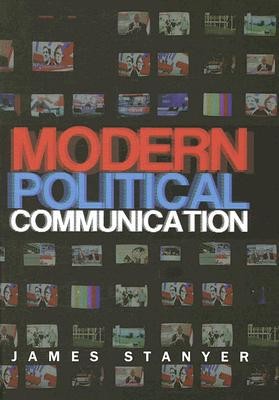
- We will send in 10–14 business days.
- Author: James Stanyer
- Publisher: Polity Press
- ISBN-10: 0745627978
- ISBN-13: 9780745627977
- Format: 18.9 x 25.8 x 2.3 cm, hardcover
- Language: English
- SAVE -10% with code: EXTRA
Reviews
Description
Political communication systems in advanced industrial democracies are in a state of flux. The traditional political communication system, with its limited and regulated media channels, stable patterns of media consumption, and identifiable party loyalty, which characterized much of the twentieth century, is giving way to one that is less ordered and structured. This book provides an accessible and comprehensive account of how governments, political parties, established media organizations and citizen audiences, in the US and the UK, are adapting to this systemic change.
Against the background of audience fragmentation and widening social and political divisions, James Stanyer provides a critical appraisal of the evolving relationship of political communicators and their audience. He argues that such divisions influence citizen communicative engagement and are increasingly exacerbated by the strategic activities of political advocates and media organizations. Modern Political Communication is required reading for anyone who wants a fuller understanding of the transformation of political communication and the repercussions for democracy.
EXTRA 10 % discount with code: EXTRA
The promotion ends in 18d.11:17:43
The discount code is valid when purchasing from 10 €. Discounts do not stack.
- Author: James Stanyer
- Publisher: Polity Press
- ISBN-10: 0745627978
- ISBN-13: 9780745627977
- Format: 18.9 x 25.8 x 2.3 cm, hardcover
- Language: English English
Political communication systems in advanced industrial democracies are in a state of flux. The traditional political communication system, with its limited and regulated media channels, stable patterns of media consumption, and identifiable party loyalty, which characterized much of the twentieth century, is giving way to one that is less ordered and structured. This book provides an accessible and comprehensive account of how governments, political parties, established media organizations and citizen audiences, in the US and the UK, are adapting to this systemic change.
Against the background of audience fragmentation and widening social and political divisions, James Stanyer provides a critical appraisal of the evolving relationship of political communicators and their audience. He argues that such divisions influence citizen communicative engagement and are increasingly exacerbated by the strategic activities of political advocates and media organizations. Modern Political Communication is required reading for anyone who wants a fuller understanding of the transformation of political communication and the repercussions for democracy.


Reviews